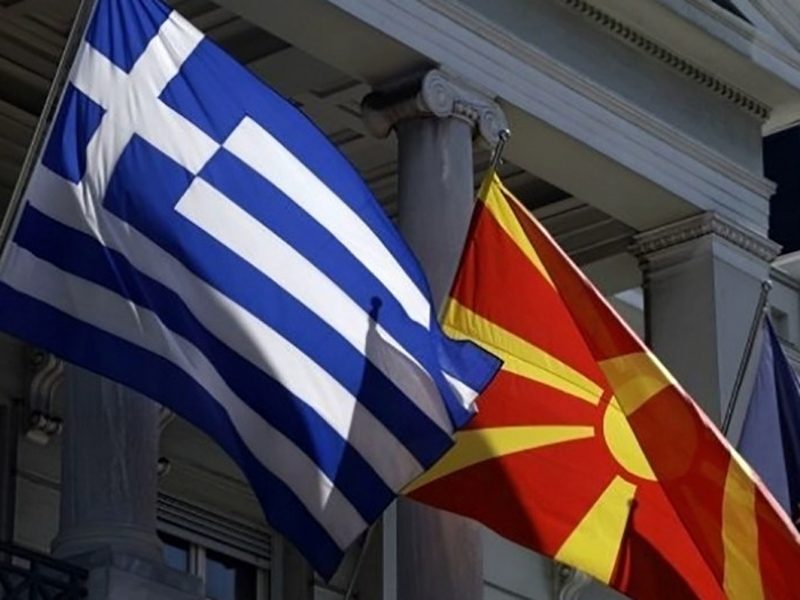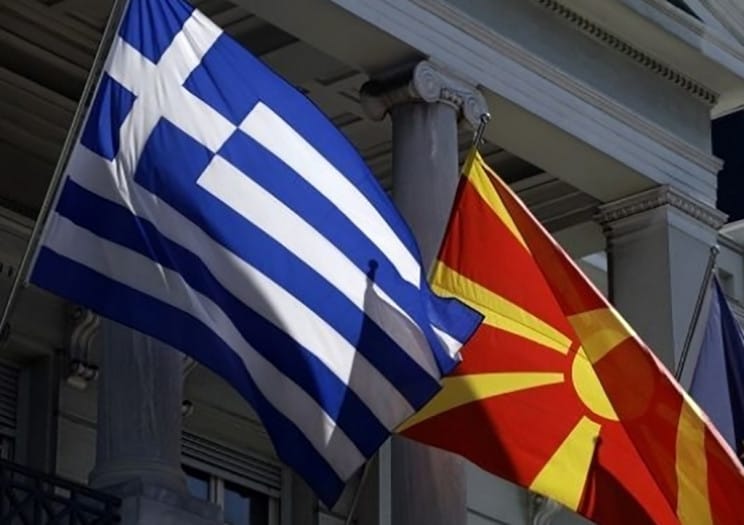Op-Ed by Alex Constantine
The recent historic agreement between Greece and FYROM which aimed at resolving the decades old name dispute has understandably triggered extreme reactions in both countries. But often lost in the sea of emotion, patriotism, nationalism and good intentions are the details and facts.
Whether you are a politically left or right leaning Greek or somewhere in between, the fact is that the Agreement does address the key concerns of Cultural Appropriationand Irredentist Claims by FYROM.
However, the problem that will face Greece in the international arena is that the ‘cultural’ confusion surrounding the term ‘Macedonia’ will continue for some time. In other words, foreign media and audiences are unlikely to distinguish between ‘Macedonia’ the cultural term, the language, the geographic region and so forth.
Whilst successful Greek governments underestimated the 'threat' posed by the small territory after the dissolution of Yugoslavia and Greek community organisations in the diaspora were busy doing dinner dances and finding new ways to disengage from each other and form break-away organisations, the FYROMians in the diaspora were busy conducting a very aggressive campaign of historical revisionism, lobbying universities, the media and politicians. They succeeded so that even now, with this agreement, it will take some effort on the Greek part to re-educate the public to discern 'Macedonia' the Greek province since antiquity and ‘Northern Macedonia’ the Slavic republic to the north of Greece.
Cultural Appropriation
In Article 1 of the Agreement it is stipulated that the nationality and language of the citizens of FYROM shall be Macedonian. At first sight this is problematic and will be one of the factors that will delay resolving the confusion noted earlier. However, Article 7 of the same agreement clarifies and distinguishes the Slavic from the Greek usage of the term Macedonian by the following definition:
The Parties, that is Greece and FYROM, acknowledge that their respective understanding of the terms Macedonian refers to a different historical context and cultural heritage.
When reference is made to Greece, the terms Macedonian denote not only the area and people of the northern region of Greece known as Macedonia, but also their attributes, as well as the Hellenic civilization, history, culture and heritage of that region from antiquity to present day.
When reference is made to FYROM, the term Macedonian denotes its territory, language, people and their attributes, with their own history, culture and heritage, distinctly different from those mentioned above when referring to Greece’s usage of Macedonia/ian.
FYROM notes that its official language, the Macedonian language, is within the group of south Slavic languages and is not related to the ancient Hellenic civilization, history, culture and heritage of the northern region of Macedonia in Greece.
In other words, for the first time, the people of FYROM will not be able to profess any connection to Alexander the Great and any aspect of Greek culture through the term Macedonia as they had done previously. The term Macedonia is no longer their Trojan horse into Greek culture.
This is one of the reasons nationalists in FYROM rejected the Agreement as it denies them the falsification of history and their identity. This is a major win for Greece and something one would hope assuage all previous Greek fears and concerns regarding cultural appropriation.
But, as mentioned earlier, the public’s ‘unlearning’ and ‘re-education’ will take time given FYROM was still granted use of the term ‘Macedonia’ in the first place.
Irredentist Claims
For decades FYROM distributed maps claiming the Greek province of Macedonia so understandably when the name of Northern Macedonia was agreed by both parties the issue of territorial claims on Greece was at the forefront.
Article 3 of the Agreement settles concerns regarding territorial claims by FYROM as follows:
Greece and FYROM confirm their common existing frontier as an enduring and inviolable international border. Neither Greece nor FYROM shall support any claims to any part of the territory of the other Party or claims for a change to their common existing frontier. In addition, neither Party shall support any such claims that may be raised by any third party.
Both Greece and FYROM commit to respect the sovereignty, the territorial integrity and the political independence of the other Party.
Both Parties shall refrain, in accordance with the purposes and principles of the Charter of the United Nations, from the threat or use of force, including the threat or use of force intended to violate their common existing frontier
The use of an open-compound name, such as the one agreed upon was not the best choice and a closed-compound name was a better choice.
None of us wanted the Greek government to grant the use of ‘’Macedonia’’ to FYROM but in the world of real politik and negotiations, both parties have to give and take. Compromises are, whether we like it or not, inevitable.
And the compromise we made?
Either we continue as we were with the term Macedonian included in the acronym F.Y.R.O.M anyway, and the country continue to be recognised by most countries by its constitutional name 'Republic of Macedonia' and their people claiming Alexander the Great as their own, hijacking and falsifying history and maintaining the confusion,
OR
Granting them the term ‘Northern Macedonia’ as a geographical indicator and their people admitting their language and culture are Slavic with no relation to Alexander the Great.
With this Agreement we get the latter.
If we don't want either, then only war will give one negotiating party 100% of their demands over the other party.
We need to make a choice and be prepared to live with the consequences.
*To submit an article for consideration, email: [email protected]
*The opinions expressed in this piece are those of the authors. They do not purport to reflect the opinions or views of Greek City Times or its members.



